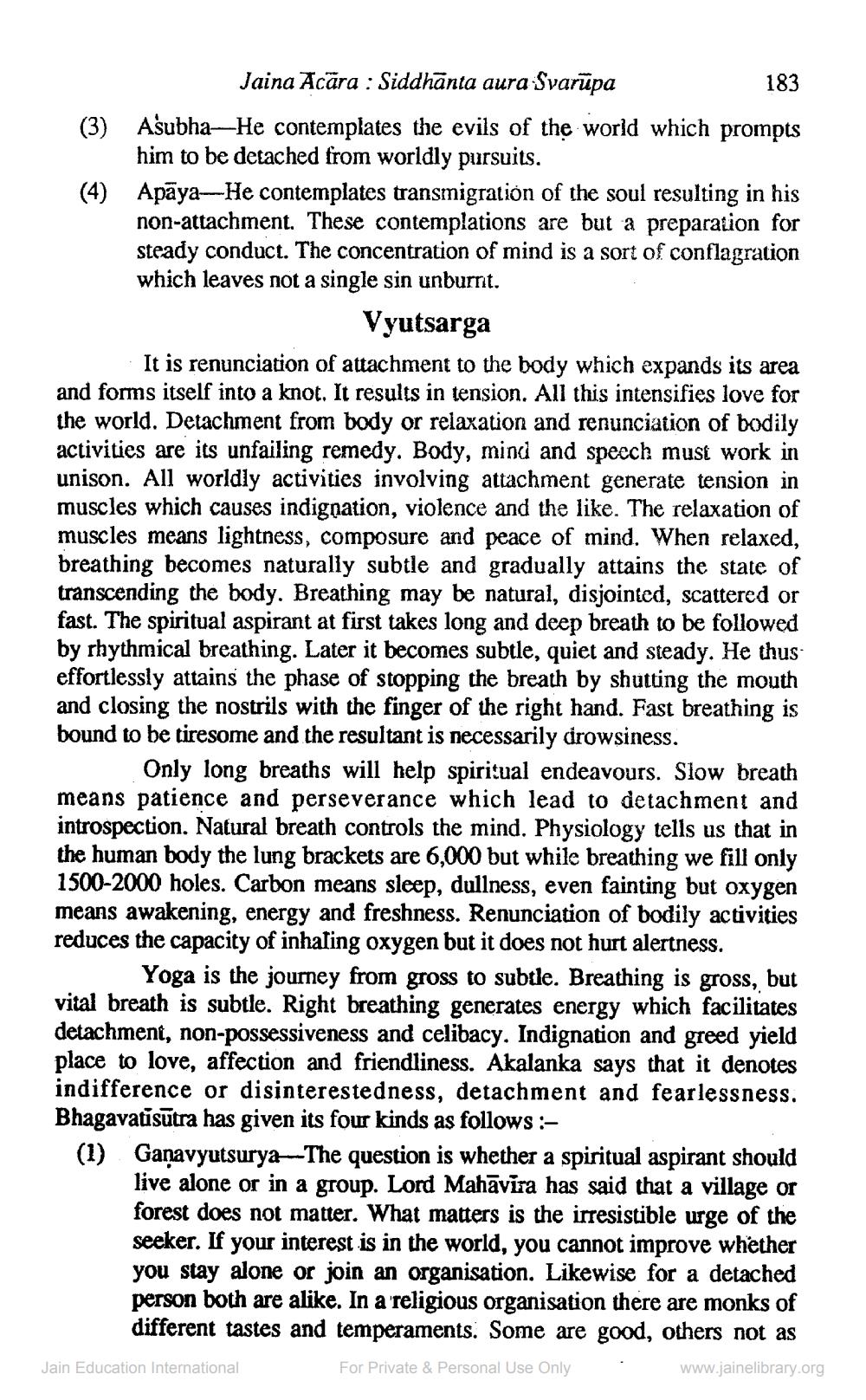________________
Jaina Acara: Siddhanta aura Svarupa
183
(3) Asubha-He contemplates the evils of the world which prompts him to be detached from worldly pursuits.
(4) Apaya-He contemplates transmigration of the soul resulting in his non-attachment. These contemplations are but a preparation for steady conduct. The concentration of mind is a sort of conflagration which leaves not a single sin unburnt.
Vyutsarga
It is renunciation of attachment to the body which expands its area and forms itself into a knot. It results in tension. All this intensifies love for the world. Detachment from body or relaxation and renunciation of bodily activities are its unfailing remedy. Body, mind and speech must work in unison. All worldly activities involving attachment generate tension in muscles which causes indignation, violence and the like. The relaxation of muscles means lightness, composure and peace of mind. When relaxed, breathing becomes naturally subtle and gradually attains the state of transcending the body. Breathing may be natural, disjointed, scattered or fast. The spiritual aspirant at first takes long and deep breath to be followed by rhythmical breathing. Later it becomes subtle, quiet and steady. He thus effortlessly attains the phase of stopping the breath by shutting the mouth and closing the nostrils with the finger of the right hand. Fast breathing is bound to be tiresome and the resultant is necessarily drowsiness.
Only long breaths will help spiritual endeavours. Slow breath means patience and perseverance which lead to detachment and introspection. Natural breath controls the mind. Physiology tells us that in the human body the lung brackets are 6,000 but while breathing we fill only 1500-2000 holes. Carbon means sleep, dullness, even fainting but oxygen means awakening, energy and freshness. Renunciation of bodily activities reduces the capacity of inhaling oxygen but it does not hurt alertness.
Yoga is the journey from gross to subtle. Breathing is gross, but vital breath is subtle. Right breathing generates energy which facilitates detachment, non-possessiveness and celibacy. Indignation and greed yield place to love, affection and friendliness. Akalanka says that it denotes indifference or disinterestedness, detachment and fearlessness. Bhagavatisūtra has given its four kinds as follows:
(1)
Ganavyutsurya-The question is whether a spiritual aspirant should live alone or in a group. Lord Mahavira has said that a village or forest does not matter. What matters is the irresistible urge of the seeker. If your interest is in the world, you cannot improve whether you stay alone or join an organisation. Likewise for a detached person both are alike. In a religious organisation there are monks of different tastes and temperaments. Some are good, others not as
For Private & Personal Use Only
www.jainelibrary.org
Jain Education International




